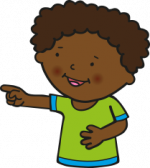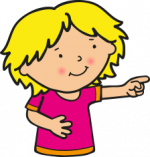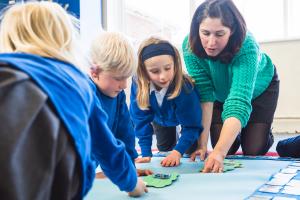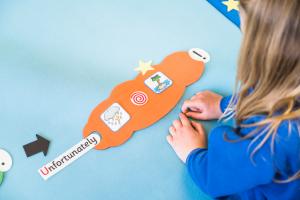Empower Children to Master Writing
Children who are able to master writing will soon enjoy the benefits of using their literacy skills freely, with accuracy and flair – but what do we mean by ‘master’, exactly?
Writing is a broad skill, so it’s difficult to precisely define what mastery looks like. When assessing the skills of children, we would usually consider competency to mean they are:
- Writing independently

- Using capital letters and full stops appropriately
- Writing simple or extended sentences with confidence
- Using a range of contexts.
Teaching children to write is hard.
You’ll no doubt be asking yourself…
“Have we covered it all?”
“Are all the children getting it?”
“Is this enjoyable for the class?”
And let’s not forget… learning to write is hard, too.
Children will also have some natural doubts while they embark on their learning journey.
“Do I understand?”
“Can I remember it all?”
“Can I do it?”
“Am I enjoying it?”
How can your teaching methods help children to master writing?
Covering the subject matter is one thing, but the ultimate outcome where a child has mastered the art of writing is another milestone altogether.
As children enter Early Years and make their way through Primary school, we can provide a structured approach which supports the natural progression of learning to become a writer – and backs National Curriculum objectives, too.
We begin with developing vocabulary. This could include:
- Sequencing ideas
- Speaking in sentences
- Writing simple and then extended sentences
… and so on.
There can be a tremendous amount to cover and - year on year - more objectives, phrases and terminology are added to the list of things children need to understand and demonstrate.
 All the while, children are progressing at varying levels of ability – so there’s no one-size-fits-all approach.
All the while, children are progressing at varying levels of ability – so there’s no one-size-fits-all approach.
Children need to be able to understand how to do something before they can demonstrate it. We see this throughout child development - Until children can speak in sentences, they can’t write them down. Until they understand where the end of the sentence is, they can’t use a full stop correctly.
Some children will reach these milestones quicker than others – enabling them to advance to the next stage, while others do not (or at least, not for a little while longer).
The list of skills that children need to achieve may seem huge, but they can become masters of language even in their very early stages of language development - simply because they understand how it works. They get it. And this is all down to the way it is presented to them.
Children need time to practice. How this time is spent is crucial.
Children like to play, explore and ‘see’ things.
They like to be able to touch things, experiment and find out for themselves.
Giving children ownership of language, right from the start, will empower them to realise they have an imagination. They can create the most wonderful ideas, right out of their own minds; and organising these ideas is these is the first step towards writing mastery.
Organising ideas into pictorial sentences, with strong visual cues, can then give children the ability to picture sentences in their head.
Once they have mastered this skill, they can start to add more and more elements their sentences - making their storytelling increasingly complex.
They can do this gradually over time, but the foundations they are building – such as what it means to be a writer, and the capability to apply this with confidence and independence - are incredibly strong. They have a deep understanding which they can build on as they progress.
With a kinaesthetic approach, children naturally start to add in all the elements needed in their writing, because they understand that this is the process required.
As more and more concepts are introduced to them, they can slot those elements into place.
By working with sentences and different genres on a practical and visual level, they can spend as much time as they need to organise their ideas and build them up when they are ready.
They begin to edit and try out new ideas.
They learn to hear where the full stop should go.
They begin to understand where a verb could improve the sentence.
The begin to think carefully about word choices.
They have a very sound understanding as they have been given time to practice - as much time as they need, in fact. As a result, the progress they make is far quicker than if they had been pressured to continually layer new elements, without the initial understanding to underpin it.
Critically, they achieve success because the motivation and understanding is coming from within themselves, as a result of how writing has been carefully and gradually introduced to them.
Mighty Writer - Empowering Children to Master Writing
Mighty Writer allows children to plan and write their own stories using just pictures, right through to creating increasingly complex sentences and story structures, which they can re-tell and edit as many times as they wish.
It gives children permission to explore and rehearse ideas, without the fear that they may do something wrong.
Watch Emma Ralph discuss how Mighty Writer can transform literacy results in your classroom, overnight - 30sec.


